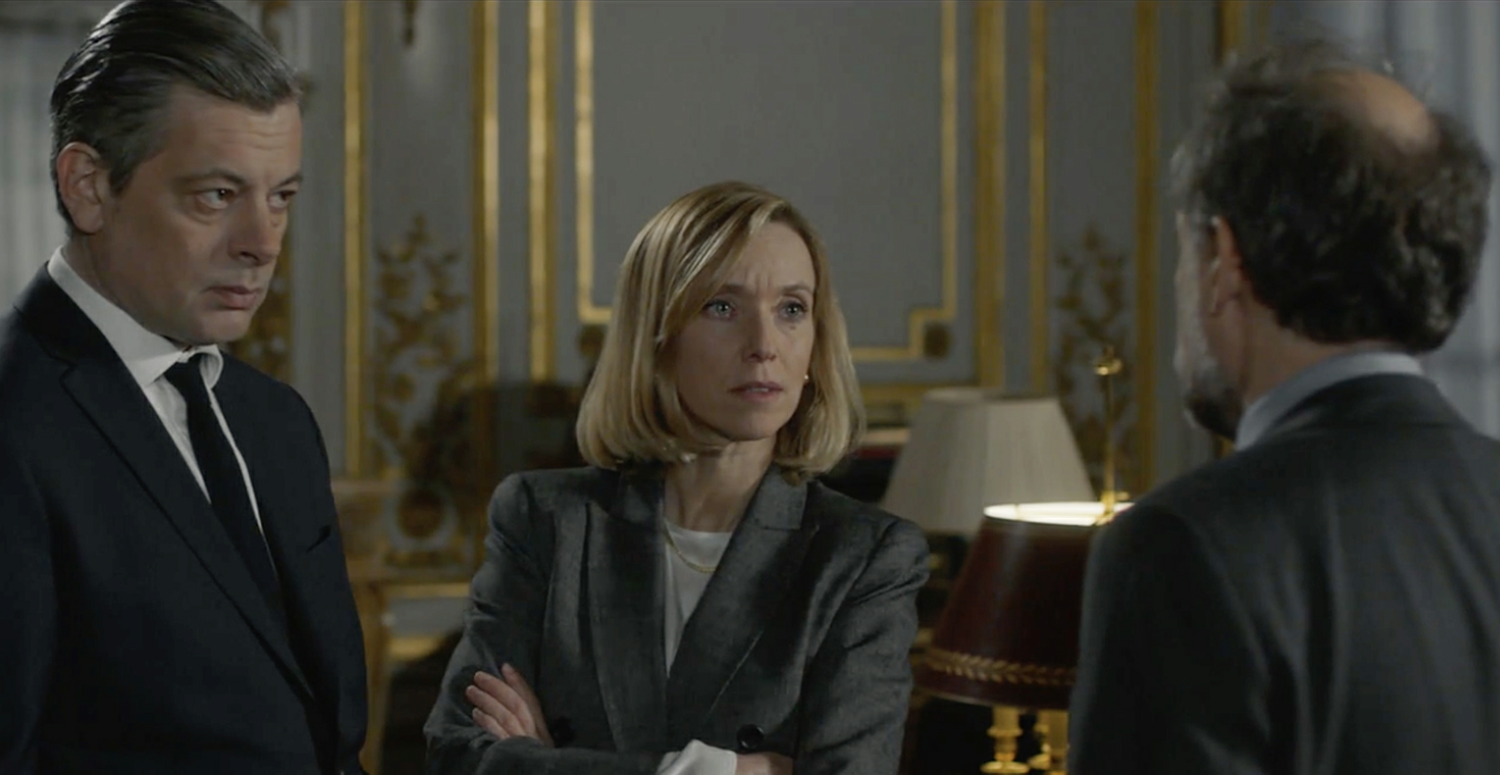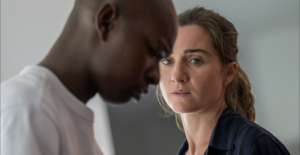Le Monde d’Hier
(Yesterday’s World)
2022

FR EN
Un thriller de politique-fiction français brûlant d’actualité !
Peut-on tuer au nom de l’Histoire ? Telle est la question centrale de ce récit empruntant aux tragédies antiques et aux drames shakespeariens mettant en scène une Présidente de la République qui a choisi de se retirer de la vie politique mais apprend à trois jours du premier tour des élections présidentielles, par son Secrétaire Général, qu’un scandale venant d’un site russe va éclabousser son successeur désigné et ainsi donner la victoire au candidat d’extrême-droite ! Ils n’ont donc que trois jours pour changer le cours de l’Histoire …
Le nouveau film de Diastème reprend le titre du dernier ouvrage de Stefan Zweig avant son suicide dans lequel l’auteur allemand décrivait la mort d’une civilisation et la nostalgie d’une Europe insouciante qui va voir une époque stable s’effondrer avec les deux guerres mondiales. Son film, écrit avec la participation de Fabrice Lhomme, Gérard Davet et Fabrice Honoré, questionne ainsi le sens de l’Histoire s’intéressant à la politique comme une affaire d’humanités.
On est alors loin des enjeux débattus entre candidats, on s’intéresse plutôt aux tâches écrasantes du métier, à la trace que l’on s’apprête à laisser, à quelque chose de supérieur : la charge du pouvoir. Ce poids de la fonction et de l’Histoire est alors mis en image par un climat oppressant, une ambiance funèbre et des éclairages crépusculaires annonçant la fin d’un règne. Le dilemme est débattu par un huis-clos étouffant dans un palais présidentiel voué à la nuit comme le montre la scène d’ouverture avec une Présidente épuisée, mélancolique et regardant à travers la vitre le monde qui lui échappe, le monde d’hier. Son mandat s’achève sans éclat et face au cancer rongeant l’Europe, elle doit se positionner dans le sillage des siècles.
Grâce à des dialogues minutieux et un style très classique, « Le Monde d’hier » met ainsi en scène une tragédie républicaine dans le théâtre de l’Élysée où d’élégants personnages désenchantés se font face dans un régal de jeu à commencer par le duo de tête Léa Drucker et Denis Podalydès complices dans leurs rêveries, leurs égarements et l’impasse du pouvoir. Alban Lenoir incarne lui un garde du corps dévoué et mutique qui comprend tout en un clin d’œil et sur qui repose finalement la charge émotionnelle du récit lorsqu’il suit sa reine, l’accompagne et la porte aux côtés de Benjamin Biolay et Thierry Godard qui complètent cet excellent casting.
« Le Monde d’hier » est ainsi un film politique unique pour son regard sur la fonction peignant de manière sombre la solitude d’un pouvoir à l’agonie et naviguant entre les silences d’État évoquant le Président Mitterrand, et la fragilité du régime démocratique. Par ces forts choix, le film creuse une certaine distance avec le réel mais s’impose comme un puissant thriller politique. Une œuvre dense et profonde.
A burning French thriller of political fiction!
Can you commit murder in the name of History? That is the key concern of this story, which borrows from ancient tragedies and Shakespearean dramas, and features a President of the Republic who has chosen to retire from political life, but learns three days before the first round of presidential elections, from her Secretary General, that a scandal from a Russian website is going to splash her chosen successor and thus hand victory to the far-right candidate! They therefore have only three days to change the course of History …
Diastème’s new movie uses the title of Stefan Zweig’s last book before his suicide, in which the German author described the death of a civilization and the nostalgia of a reckless Europe that will see a stable era collapse with the two world wars. His film, written with the help of Fabrice Lhomme, Gérard Davet and Fabrice Honoré, thus questions the point of History, looking at politics as a matter of humanities.
We are then far from the issues debated between candidates, rather we focus on the crushing tasks of the job, the mark that we are about to leave, something greater: the burden of power. This load of the office and of History is then illustrated by an oppressive setting, a funereal mood and twilight lights foretelling the end of a reign. The dilemma is debated in a stifling closed-door setting in a presidential palace doomed to the night, as shown in the opening scene with an exhausted, melancholic President looking through the glass at the world that is slipping away from her, yesterday’s world [hence “Le Monde d’hier”]. Her term of office is ending without a glow, and confronted with the cancer consuming Europe, she must choose her path through the centuries.
Thanks to detailed dialogues and a very classical style, “Le Monde d’hier” stages a republican tragedy in the theater of the Elysée Palace where elegant disenchanted characters face each other with wonderful acting, starting with the leading duo Léa Drucker and Denis Podalydès, partners in their daydreams, their misguidance and the deadlock of power. As for Alban Lenoir, he plays a devoted and silent bodyguard who understands everything in the blink of an eye and upon whom the emotional strength of the story ultimately lies when he follows his queen, accompanies her and carries her alongside Benjamin Biolay and Thierry Godard who make up the excellent cast.
“Le Monde d’hier” is thus a unique political film for its perspective on the office depicting in a dark fashion the loneliness of a power agonizing and navigating between the State silences reminiscent of President Mitterrand, and the fragility of the democratic regime. With these strong choices, the film takes a certain distance with reality but stands out as a powerful political thriller. A dense and deep movie.

